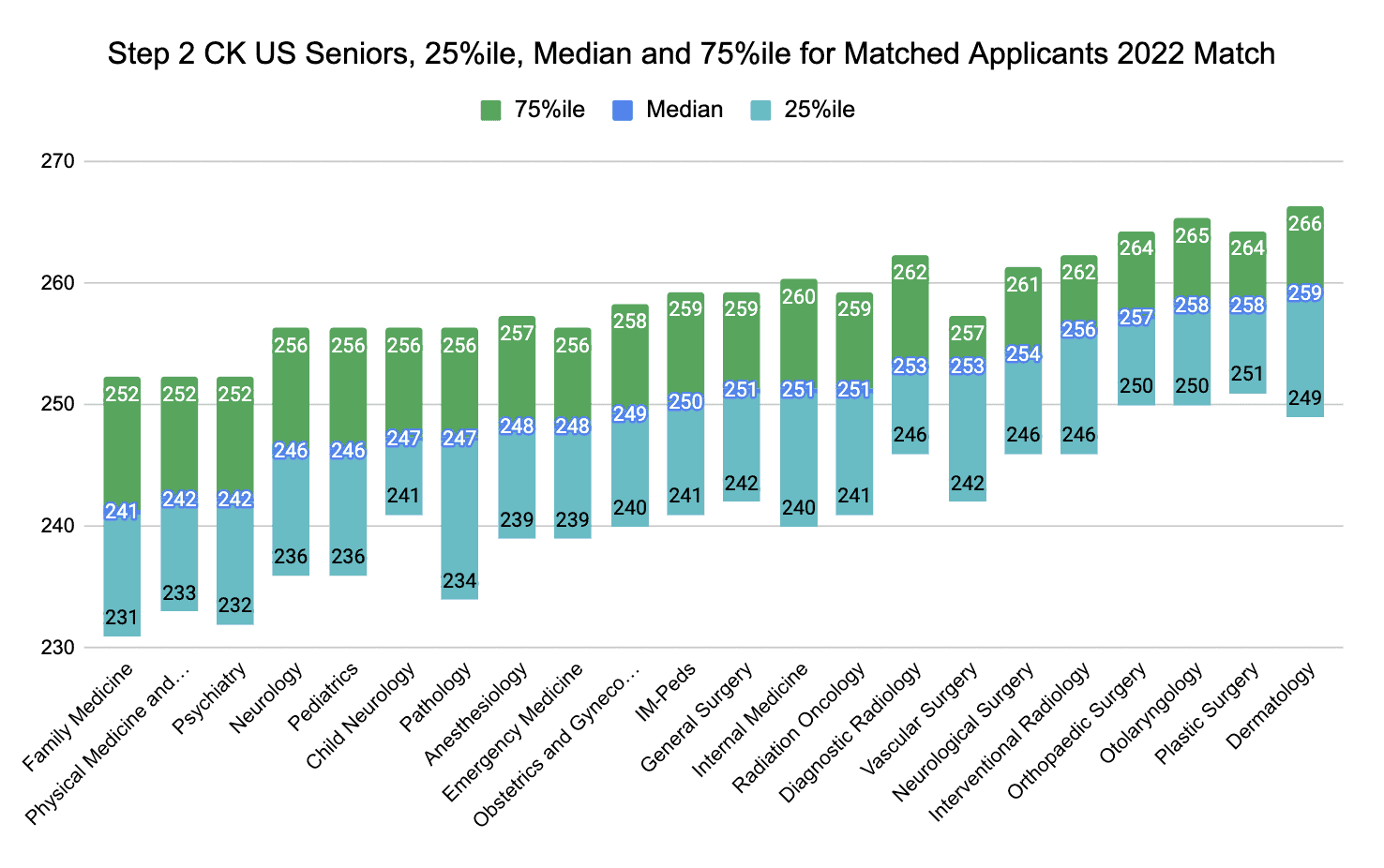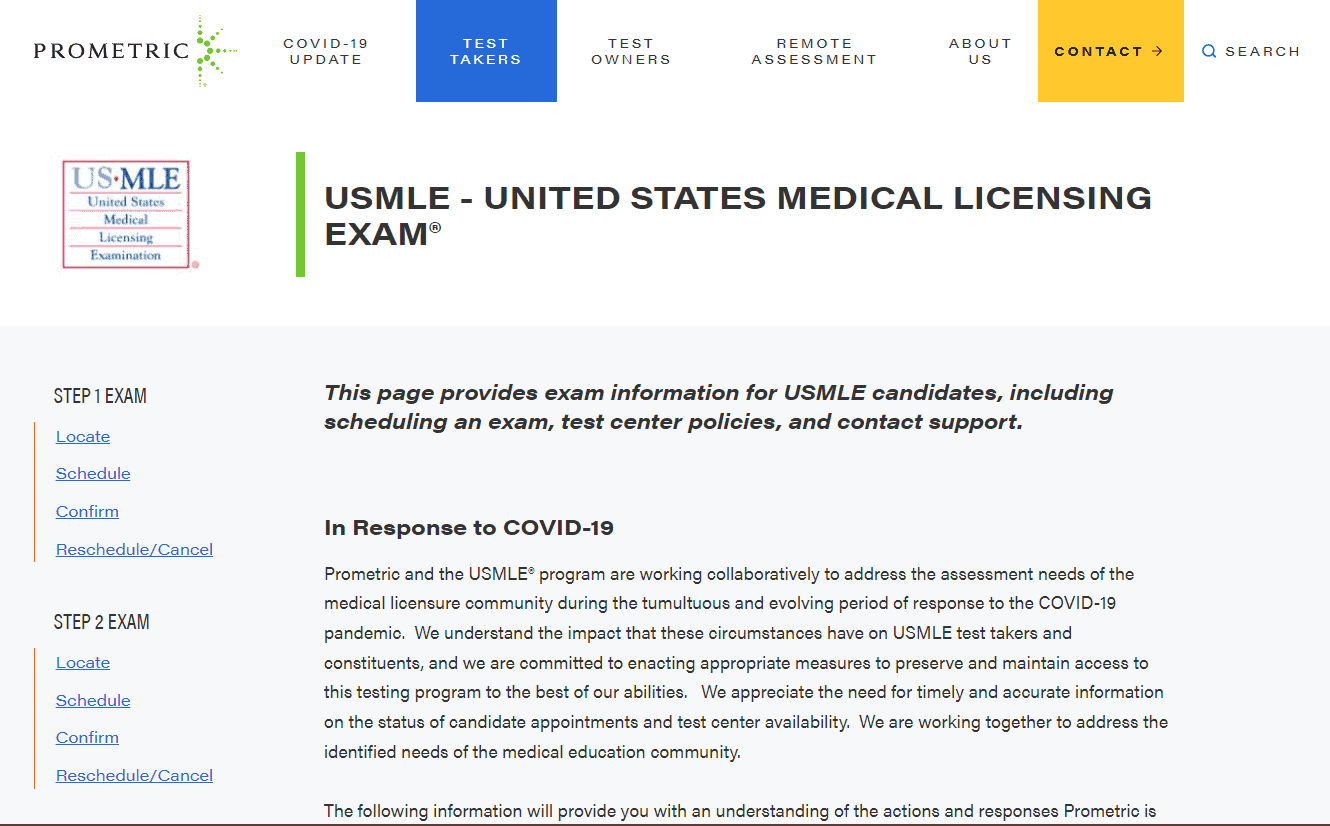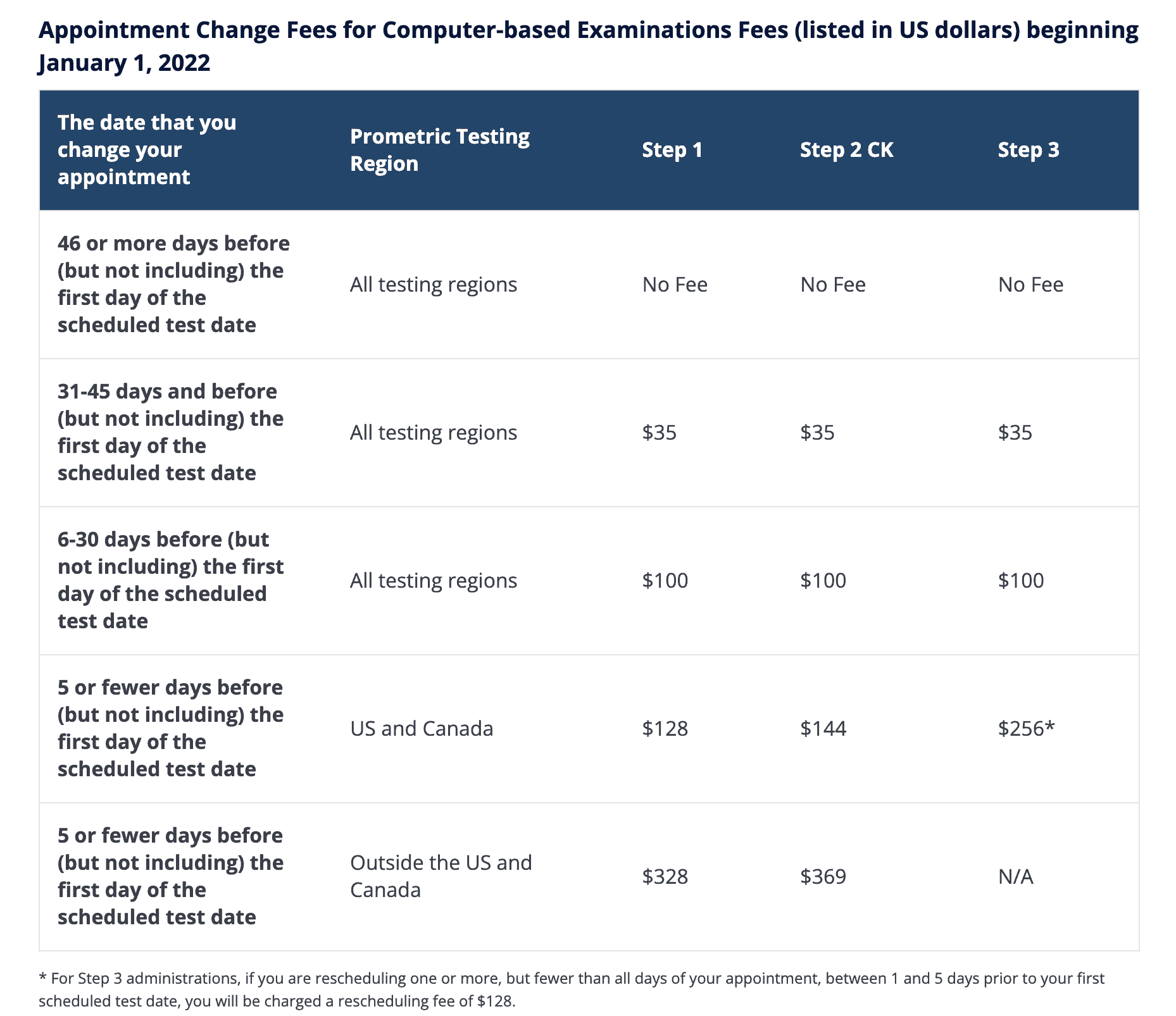

Does the date of your USMLE fill you with dread as the days pass? Were you confident that you had plenty of time to prepare when you scheduled your exam but are now overwhelmed with the certainty that you aren’t ready? If you haven’t studied enough, aren’t in a good mental space, or just need a little more time, your scheduled USMLE exam date may keep you up at night.
If this sounds familiar, take a deep breath. Hold it …Keep holding… just a little longer…and exhale slowly. It is going to be okay. Whether your exam is in two months, two weeks, or two hours, you have options to cancel and/or reschedule. Knowing these options can empower you to make the best decision for you and your future. So, let’s walk through your options.
Summary:
- If you aren’t in range of meeting your needed Step score on your NBME Self-Assessments, rescheduling your exam might be wise.
- The closer to the exam day that you cancel, the more the rescheduling fee increases.
- You can extend your USMLE eligibility period through ECFMG or NBME one time by a three month period.
- It won’t count as a failed USMLE attempt if you don’t show up on the exam day.
- If you start the USMLE exam but don’t complete it, it will be listed as an incomplete attempt.
- And much more.
Table of Contents
Don’t Take Your Test Until You’re Ready
First of all, anxiety before any major exam is normal. If you are experiencing pre-test jitters but know you are ready (in other words, pushing your test back won’t improve anything), this article might not be for you. Instead, check out these articles on test-taking anxiety or what to do the week before the test. They can offer some practical advice to help you understand some mental blocks that steal your sleep at night and how to best prepare in the final days before your USMLE.
If you aren’t sure if you should move forward with your exam right now, then consider:
- Which USMLE are you taking?
- If it is Step 1, are you at risk of failing?
- If it is Step 2, what is your target score? How important is it to attain?
- Can you achieve your target Step 2 score?
Reschedule Step 1 or Step 2 If You Are at Risk of Failing
So why not just see how it goes and try again later if you need to? That is not a good idea for the following reasons. First, you can only attempt a USMLE step four times. This includes any incomplete attempts (starting but not finishing the exam). So, don’t take your test if you risk failing it. If you have been failing (or close to it) your practice exams, then delaying the USMLE is in your best interest. While it is not a death sentence, failing a Step will go on your record and will decrease the competitiveness of your application.
If you have already failed a Step, check out these articles for advice on what to do next: Fail Step 1 Or Step 2 CK? Do This, How Many People Fail the USMLE Step 1 and Step 2 CK Each Year? and Will Failing Step 1 Be the Best Thing That Could Have Happened? Yousmle has worked with many students who have thrived after failing Step 1 or Step 2 CK.
Reschedule Step 2 If You Can’t Meet Your Target Score
Another reason to reschedule is if you aren’t in the range of your target score. If you pass a USMLE Step, you are not eligible to retake that Step to get a higher score. The only exception would be if you need to retake it to comply with other organizational requirements (e.g., If seven years passed between passing your first Step and obtaining your other ECFMG requirements for certification). So, delaying might give you more time to improve your score if you aim to apply for a competitive specialty (we’re looking at you plastic surgery, ENT, and dermatology).
If you need more help deciding if you are ready or need more time, try: Are You Ready to Take Your USMLE or Need More Time?
NBME Self-Assessments Taken Within 2 Weeks of the Exam Are (Usually) Accurate Predictors of Your USMLE Score
How do you know if you risk failing or not meeting your target score? The best score predictors are the NBME (National Board of Medical Examiners) Self-Assessments. This is because the NBME has correlated each form with students’ final scores. For this reason, the NBME Self-Assessments are the most accurate predictors of your final USMLE score. It is rare to see someone score significantly higher (or lower) than NBME Self-Assessments taken within two weeks of the test. So, what do you do with this information?
(Check out: NBME Self Assessments: Ultimate Guide for the USMLEs and Shelf Exams)
Your target score will likely be (partially) dictated by your chosen specialty (we will explain that below). If you aren’t reaching your goal in your NBME Self-Assessments, you probably won’t reach it on your actual USMLE. There is no shame in delaying your exam until you are ready. Even if it pushes back your graduation or plan by a year, you can always use that time to strengthen your experiences and residency application.
The Importance of Obtaining Your Target Step 2 Score Varies by Specialty
Programs need a way to compare vast numbers of students on an equivalent basis. With Step 1 moving to pass/fail, Step 2 is looking to become increasingly important as a key indicator for obtaining residency interviews. However, the actual expected score varies by specialty. Check out these scores taken from the 2022 Match. They indicate scores within the 25th, middle, and 75th percentile for matched applicants in different specialties.

Step 2 CK US Seniors, 25%ile, Median and 75%ile for Matched Applicants 2022 Match
So, in determining the importance of your target score, you first want to see how it compares to the expectations of your chosen specialty. For example, if your goal is to score a 235 and match into family medicine, you would have a little wiggle room between the lower 25 % of matched scores and your target. Attaining your score is still important, but you could miss it by a few points and still have a decent chance of matching into your chosen specialty. If your goal is to match into internal medicine, achieving a 240+ would be essential.
See our Step Percentiles article to understand better which Step scores each specialty expects.
Rescheduling Your USMLE is Simple Through the Prometric Website
Since you are reading an article on rescheduling or canceling the exam, we’ll assume that you have probably registered for a USMLE Step. If so, then you had to select an eligibility period. This eligibility period is a three-month period in which you can take your exam. You would have received a scheduling permit and had the opportunity to schedule your USMLE exam with Prometric (the exam facilitator) up to 6 months in advance.
To reschedule with Prometric, you go to their website and click on the “reschedule” link under the relevant Step. There you will need to enter your confirmation number and your surname.

The reschedule/cancel link is on the left side of the page.
The Cost Of Rescheduling During Your Eligibility Period
So, what is the hesitation? If you aren’t ready, and your USMLE looms, why not reschedule? For some, the reluctance is financial. Prometric charges a fee even if you reschedule within your original eligibility period. The only time it won’t cost you to reschedule or cancel is if you contact the center more than 46 days before your exam. After that, the fees increase incrementally.

The sooner you reschedule your appointment, the less it will cost you.
With this in mind, if you are considering rescheduling your exam, you should do it sooner rather than later to avoid even heftier fees. Also, it is worth noting that this fee may not be due right away. For example, if you cancel your exam and wait to reschedule, the payment will only be due at the time of rescheduling.
Extending Eligibility Into the Next 3-Month Period is Possible…
So what if you need longer than your eligibility period to prepare? You can apply for a one-time extension of eligibility. You must contact either NBME or ECFMG to request an extension. This is done through their respective online portals (the same platform through which you first applied). It does come with a cost, specifically a financial cost of $100 through ECFMG and $70 through NBME. However, extending your eligibility into the next three-month block may be well worth the investment.
…But You Can Only Extend Eligibility Once
What if you already extended your eligibility, but life got in the way of preparing during those extra three months? You thought it would be plenty of time to study more, but it snuck up on you again. You still don’t have to take the exam before you are ready. You can cancel your exam if you can’t reschedule for a date within your eligibility period and have already used your one-time extension. You do this through the same Prometric link shown above for rescheduling.
When you cancel, you lose your exam fee and any other fees you have paid up to that point. Further, when you feel ready to take the Step, you must repeat the entire exam application process, including paying the exam fees again. One good thing is that you won’t have to re-verify your credentials and Form 186 with NBME/ECFMG as long as they are still valid.
Avoiding an Incomplete/Failed Exam is Possible, Even if You Don’t Have Time to Cancel
If you delayed deciding if you are ready or not, have suddenly come down with a nasty bug, or have had a personal crisis, you may be panicking the night before the exam. You don’t have time to cancel with Prometric, and their customer service is non-responsive. It isn’t ideal or inexpensive, but it doesn’t have to impact your career in the long run. Simply don’t show up to the Prometric testing center.
It will cost you financially, but it won’t affect your residency chances. You will have to reapply for USMLE registration and pay all the application fees again (which can be expensive), but it won’t be visible on your USMLE transcript in the future.
The good news is that the only time you cannot cancel or reschedule an exam is after you enter your Candidate Identification number into the testing system on the day of the test. This is how you launch the exam at the testing center. Until that point, you can cancel, and it won’t go on your record as an attempt or count towards your limit of Step attempts. This is true regardless of whether you officially canceled with Prometric/NBME/ECFMG.
The Difference Between an Incomplete Attempt, a Failed Attempt, and Not Showing Up
Once you launch the exam on the testing system, it will be considered an attempt– whether you complete it or not. So, let’s say you decide to attempt the exam but decide halfway through that you can’t finish it. You must complete every test block, or it is an incomplete attempt.
This does not mean you have to answer every question, but it does mean you have to open (and then close) every block. If you miss even one block, it is considered incomplete. It will go on your record and be visible to anyone who views your USMLE transcript in the future. This will also count against your four possible exam attempts.
It is considered a failed attempt if you start the exam and complete it but do not receive a sufficient score to pass. Like an incomplete attempt, a failed attempt will go on your transcript and count against your total number of attempts. So is it better to have an incomplete or a failed attempt?
It Isn’t Clear Whether an Incomplete or a Failed Attempt is Better
There doesn’t seem to be a conclusive answer. Theoretically, if an incomplete is considered a failed attempt, then it would be worth finishing your Step 1 exam once you start. If you happen to pass, then great. If you don’t, then you would have to retake it anyway.
For Step 2, completing the exam is riskier if you are debating an incomplete or a failed attempt. You might do well enough to just pass and end up stuck with a score significantly lower than you need. However, that is only IF an incomplete is considered a failed attempt. Which appears to depend on the residency program.
Some are more understanding of incomplete attempts than failed attempts. Other programs filter by “Passed on X Attempt,” in which an incomplete attempt would be filtered out just like a failed attempt. Without a definite answer on which programs consider incomplete attempts as failed attempts, we can’t advise which is better.
We can tell you that it won’t be counted against you if you don’t show up. The only one who has to know that will be you.
Not Ready for Your Exam and Don’t Want It to Show on Your USMLE Transcript
So, if you know you aren’t ready to take the exam, let’s summarize your options to avoid an incomplete or a failed Step attempt.
- Reschedule and/or cancel before the exam. Depending on how far in advance you did this, you will incur a financial cost. However, you will allow yourself time to better prepare for the exam.
- Simply don’t show up on exam day. You will have to repay the entire exam application fee when ready to reapply, but it won’t be on your record as an incomplete or failed attempt.
Concluding Thoughts
This article is not meant to make you hesitate or doubt your readiness to take your USMLE. If you have taken time to prepare and your NBME Self-Assessments have you achieving or exceeding your target goal, then go for it!
If you are stressing about your upcoming USMLE exam and are certain you are not (yet) ready, consider rescheduling the exam. Weigh the costs of not meeting your target goal with the time and finances you will spend delaying your exam. Is it worth the gamble? Or is it worth investing in your future to be better prepared?
If you want tips on how to study better and prepare for your exam, check out some of our other resources:
- 1 -2 Weeks Before Your USMLE? Read This
- Study Plan Priorities: How to Study for Step 1 or Any Exam
- Step 1 Study Plan: Ten Habits I Used to Score 270
- Step 1 Study Schedule for 250+ and Top Preclinical Grades
- 7 Most Commons Reasons Your Nbmes Aren’t Improving (And How to Fix Them)
- Slow Is Fast: Why Cramming for the Usmle Takes Longer
- Transform Usmle Panic to Productive Focus in 5 Steps
Sources:







